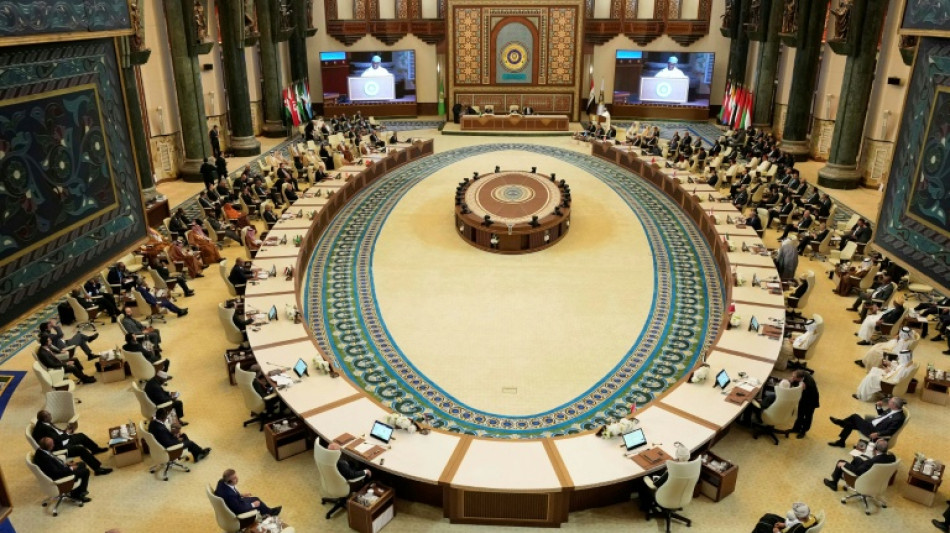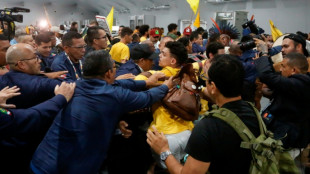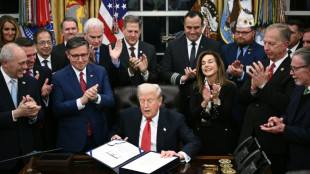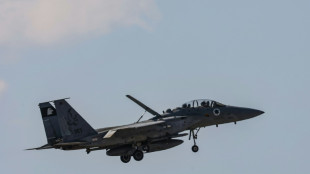

Arab summit presses for end to Gaza 'bloodshed'
Arab leaders meeting Saturday at a summit in Baghdad urged the international community to press for a Gaza ceasefire, as Israel launched an expanded military offensive in the Palestinian territory.
In a joint final statement, Arab League members also called for funding to back their Gaza reconstruction plan, after US President Donald Trump reiterated a proposal to take over the strip.
The Arab leaders called "on the international community... to exert pressure to end the bloodshed and ensure that urgent humanitarian aid can enter without obstacles all areas in need in Gaza."
They added that they "firmly" rejected any plans to displace Palestinians.
It came hours after Israel's military launched a new Gaza offensive, saying it was part of "the expansion of the battle in the Gaza Strip" aimed at defeating Palestinian militant group Hamas.
Appearing at the summit as a guest, Spanish Prime Minister Pedro Sanchez appealed for increased pressure "to halt the massacre in Gaza".
Egypt's President Abdel Fattah al-Sisi urged his US counterpart Donald Trump to "apply all necessary efforts... for a ceasefire".
United Nations chief Antonio Guterres told the summit that "we need a permanent ceasefire, now".
Guterres said he was "alarmed by reported plans by Israel to expand ground operations and more".
"We reject the repeated displacement of the Gaza population, along with any question of forced displacement outside of Gaza."
- 'Unacceptable number' -
Sanchez, who has sharply criticised the Israeli offensive, said world leaders should "intensify our pressure on Israel to halt the massacre in Gaza, particularly through the channels afforded to us by international law".
He said his government planned a UN resolution demanding an International Court of Justice ruling on Israel's war methods.
The "unacceptable number" of war victims in Gaza violates the "principle of humanity", he said.
The summit came days after a tour of the Gulf by Trump, who has sparked uproar by declaring the United States could take over Gaza and turn it into the "Riviera of the Middle East".
The scheme that included the proposed displacement of Palestinians was widely condemned, and prompted Arab leaders to come up with an alternative plan to rebuild the territory at a March summit in Cairo.
During his visit to the region, Trump reiterated that he wanted the United States to "take" Gaza and turn it into a "freedom zone".
Iraq's Prime Minister Mohammed Shia al-Sudani told the summit his country backed the creation of an "Arab fund to support reconstruction efforts" after crises in the region.
He pledged $20 million to reconstruct Gaza and a similar amount for Lebanon, after an all-out war between Israel and the Iran-backed Hezbollah.
Israel has continued to launch strikes on Lebanon despite the November 27 truce.
- Syria -
Iraq only recently regained a semblance of normality after decades of devastating conflict and turmoil, and its leaders view the summit as an opportunity to project an image of stability.
Baghdad last hosted an Arab League summit in 2012, during the early stages of the civil war in neighbouring Syria, which in December entered a new chapter with the overthrow of longtime ruler Bashar al-Assad.
In Riyadh this week, Trump met Syria's interim President Ahmed al-Sharaa, a onetime jihadist whose Islamist group spearheaded the offensive that toppled Assad.
He also said he would lift sanctions on Syria, which were mainly imposed during Assad's rule.
Arab leaders welcomed the decision and said the sanctions impacted Syria's reconstruction efforts.
Sharaa, who was imprisoned in Iraq for years after the US-led invasion of 2003 on charges of belonging to Al-Qaeda, missed the Baghdad summit after several powerful Iraqi politicians voiced opposition to his visit.
Foreign Minister Asaad al-Shaibani represented Syria, one of many countries to send ministerial-level delegations instead of leaders.
The summit also comes amid Iran's ongoing nuclear talks with the United States.
Trump has pursued diplomacy with Iran as he seeks to avert threatened military action by Israel -- a desire shared by many of the region's leaders.
This week, he said a deal was "getting close", but the next day he warned "something bad" would happen unless Iran moves fast.
X.Marino--GBA



